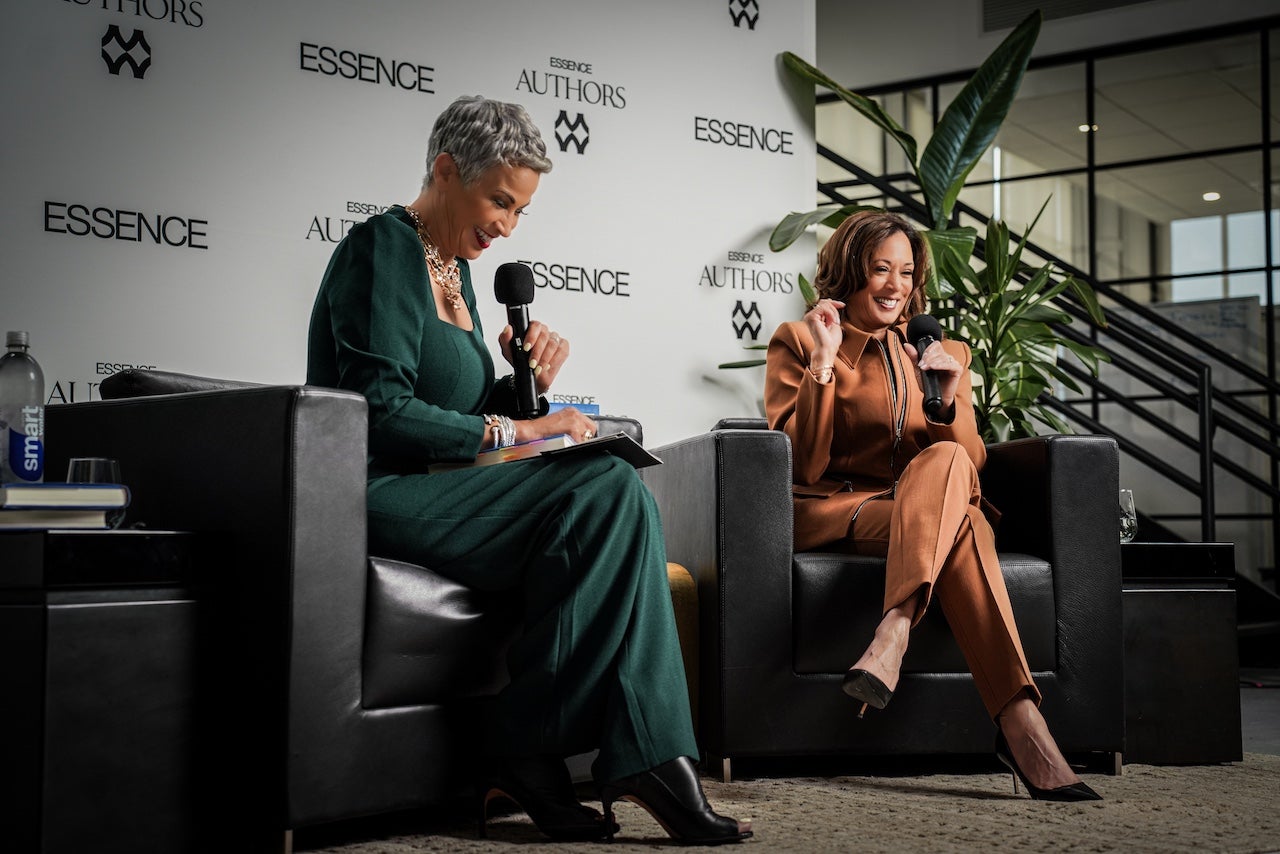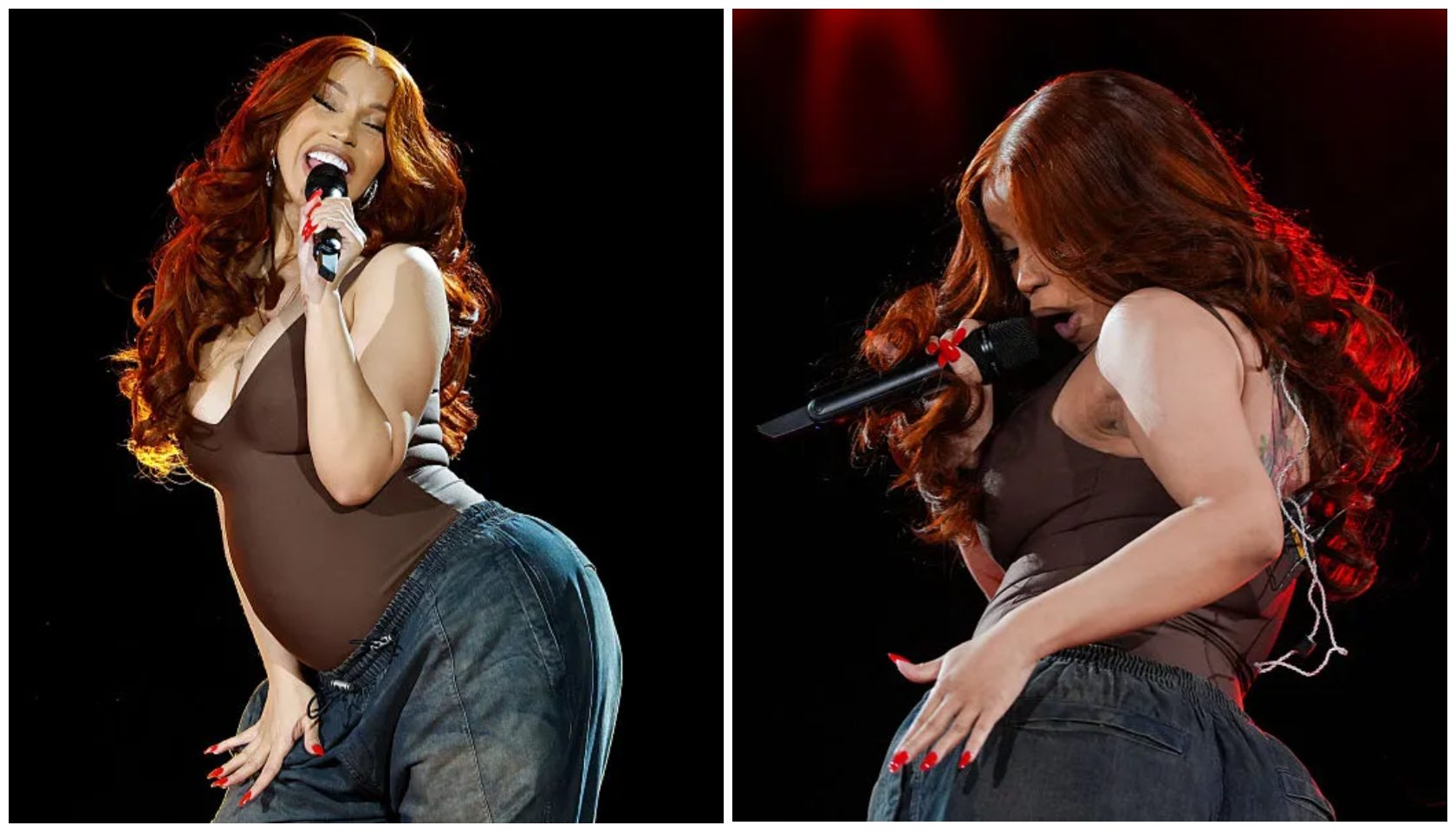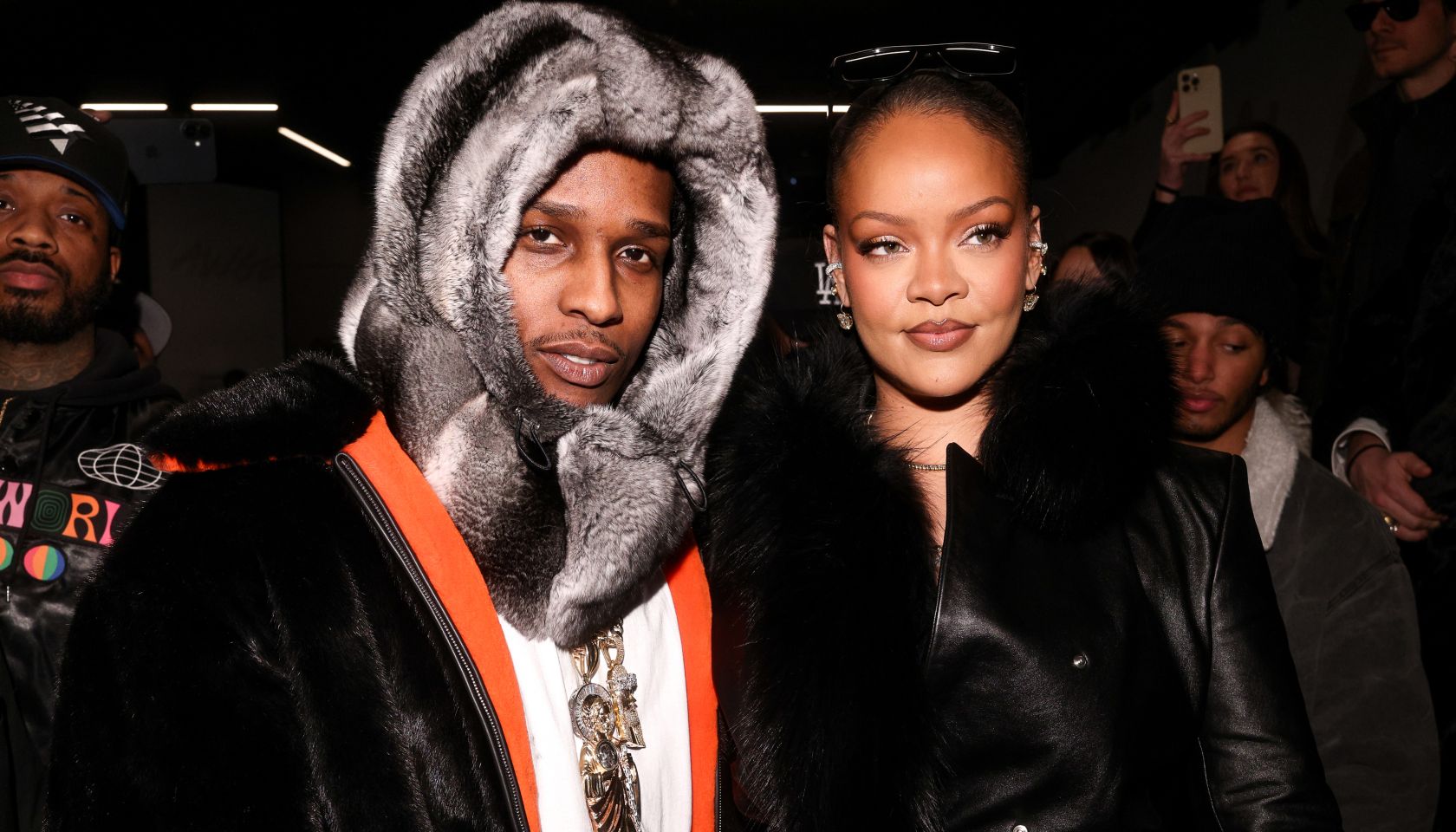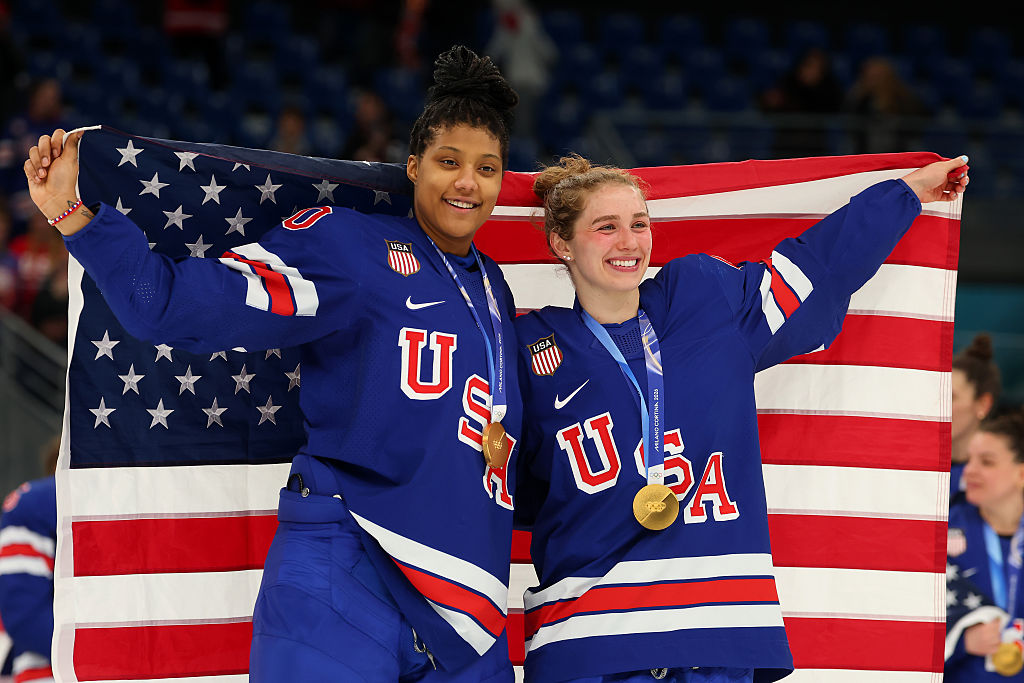When the elevator doors opened at ESSENCE headquarters, Vice President Kamala Harris stepped out with her security detail, and the energy shifted immediately. If you ever get the privilege to be around her, just know there’s something about her presence (confident but warm) that fills the room before she even says hello.
“Good afternoon, VP Harris. Great to see you again,” I said. “This is really an honor to have you and Doug here with us.”
That’s when I mentioned our shared Oakland connection, and we were no longer just host and talent, or in this case Chief Content Officer and former Vice President of the United States. We were just two Black women, both of us born and raised in that city, and suddenly we had this foundation that made everything feel more authentic. If you’ve ever been to Oakland, you already know.
We gathered with some of our ESSENCE team and Black women editors from other outlets. It felt like a family room more than a press room, full of women who had built careers breaking barriers, now sitting together with one of the most powerful Black women in the world — that’s the magic of ESSENCE HQ. Where else will you convene with all of these accomplished women, and share space with our (forever) Vice President of the United States? Especially knowing we’re the 92% who showed up and showed out for her during those historic 107 days.
Why This Book, Why Now
“Let’s start at the beginning,” I said, borrowing from Dr. King: “The time is always right to do what is right. Why write this book now?”
Her response was immediate, but came thoughtfully: “It was very important to me and my husband, Doug, that history not write about those 107 days without my voice being present to tell the story. We are living in a time, sadly, where there are those who try to rewrite history. And I’m not about to let that happen with my history.”
This was a woman intent on setting the record straight, and setting the record straight is what she is going to do. Those 107 days were unprecedented in American politics, and someone needs to tell that story right. And really, who better than Harris herself?
Never Walking Alone
One thing she said really stuck with me. When talking about leadership and isolation, she said, “There will be many times you’ll be the only one in the room who looks like you or who has had your life experience. But when you walk in that room, you have to know we are all walking in that room with you.” In that moment, I found myself thinking about the rooms I’ve walked into, and the people whose sacrifices walked in with me.
She paused, then added, “There are people outside of that room who are so proud that you are in that room.”
Harris took it further though, talking about how isolation isn’t just something that happens.
“There’s something about this moment in our country that has also perpetuated this feeling among so many people—regardless of their race or gender—that they are alone. And when people feel alone, it is disempowering. There’s nothing, I think, as much as feeling alone that can make you feel small and without power.”
She explained the strategy behind this: “If they can make you feel alone, they can strip you of your power.” Hearing her say that out loud was jarring, not because we don’t already know it, but because so few leaders name it that plainly.
The idea that isolation can be weaponized? We’ve all felt it, but hearing her name it so directly was powerful. We’ve all felt it, whether in boardrooms, classrooms, or family rooms. But hearing her call it out so directly reminded me that connection is a tool for survival.
The Warning: Don’t Make It Look Too Easy
Remember that Oakland connection that I mentioned? Of course, it was going to come full circle during our conversation. She remarked at one point that “some of the Oakland comes out sometimes when you need it.” And don’t I know it. That city shapes you (as it did me) in ways that stick. Oakland women are fueled by the grit, the community, and the way it teaches you to hold your own in any room. I’m a living, breathing testimony of this. We learn early that no one is going to hand you anything and you show up anyway.
In reflecting on her rise, Harris told a story from early in her career, when an elder in Atlanta cautioned her: “Baby, don’t you make it look so easy.”
The warning was profound. To “make it look easy” can obscure the struggle and sacrifice that leadership demands. Harris noted that for Black women in particular, there is a tension between holding dignity and revealing the true costs of the fight. It’s the quiet tax we pay even when the work has taken everything out of us.
Beyond Politics: Team and Kitchen Wisdom
“I don’t call them my staff. They’re my team. And especially for those 107 days—I actually dedicated the book to my team. From the beginning and through the joy, pain, and personal sacrifice, they left it all on the field, and I am forever grateful.”
That focus on people—on nourishment and care—shows up in other parts of her life too. Vice President Harris can cook. Really cook. Sunday family dinners are “non-negotiable” when life allows it, and Doug apparently brags about her being an “amazing chef.” She mentioned baking monster cookies and experimenting with Indian dishes as ways to decompress. The kitchen as sanctuary makes sense (particularly as a Black woman) because it’s where you nourish people, where you ground yourself when everything else is spinning.
What This Book Really Is
Harris called 107 Days “a journal, not a memoir,” and that distinction matters when you think about why, this and why now? It’s more immediate, more raw (especially in the times we’re in right now). “Don’t let other people’s limitations be your limitations,” she said toward the end of our conversation. “Sometimes the challenge we face is just helping people to see something they’ve never seen before.”
In other words, this isn’t a retrospective victory lap but a record of the fight as it happened and the lessons learned in real time.
Twenty minutes with Vice President Harris made one thing clear: she’s not performing for history, she’s teaching through it. The woman who walked through our halls to the sound of “Freedom” (yes, Beyoncé gave her permission to use it at every rally), left us with a message that any Black woman would be able to feel: You’re not powerless. You don’t stand alone. Honor the people who stand with you. And don’t let someone else’s limits become your own.
But that advice from Atlanta keeps echoing: “Baby, don’t you make it look so easy.” Because the truth is, none of this was easy. From the streets of Oakland to the halls of the White House, Vice President Kamala Harris is the one holding the pen of who gets to tell her story.







